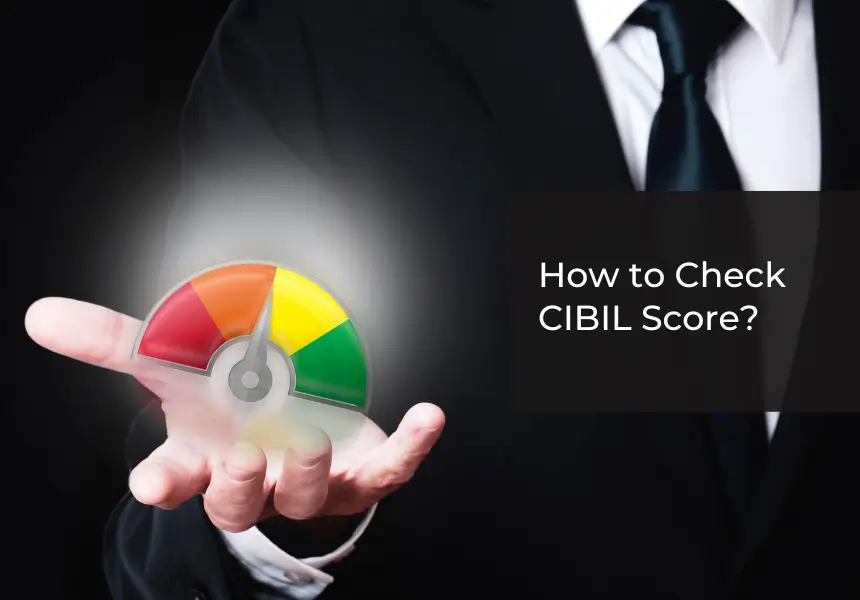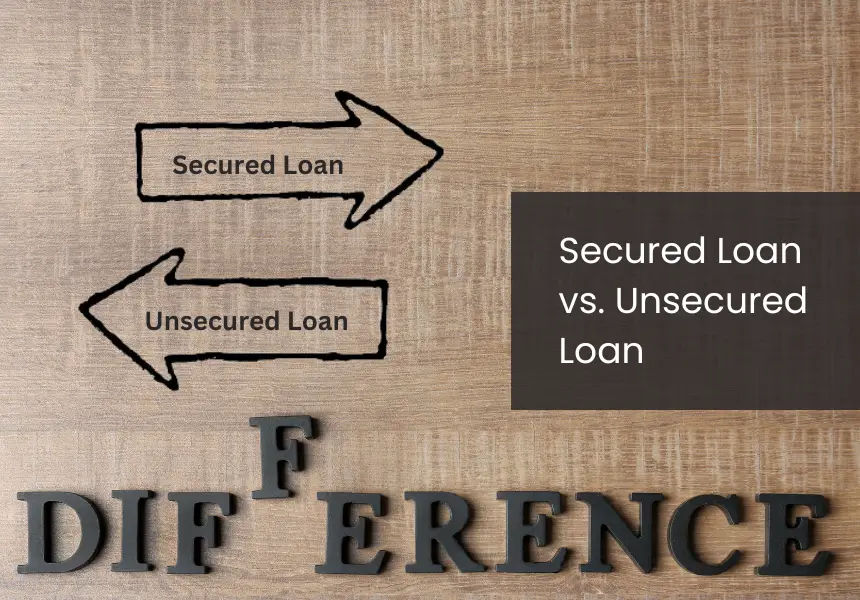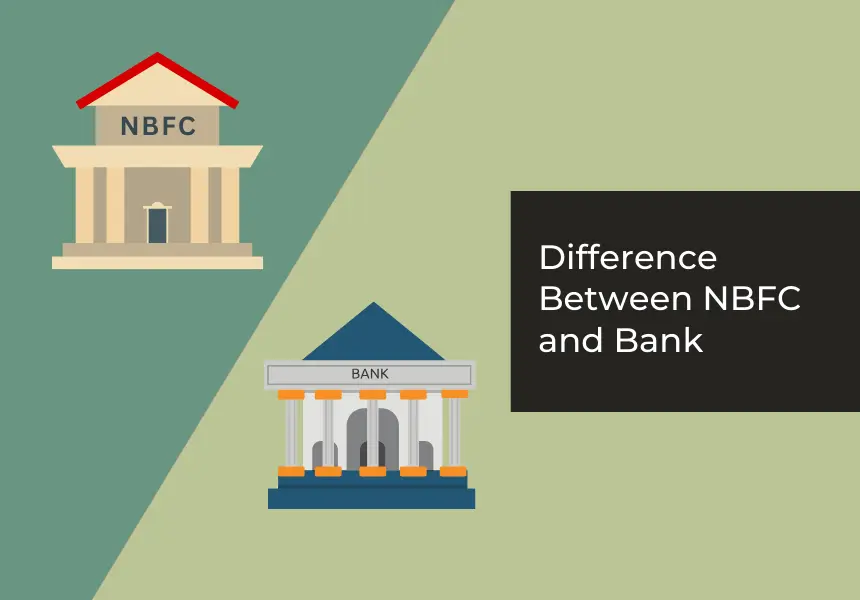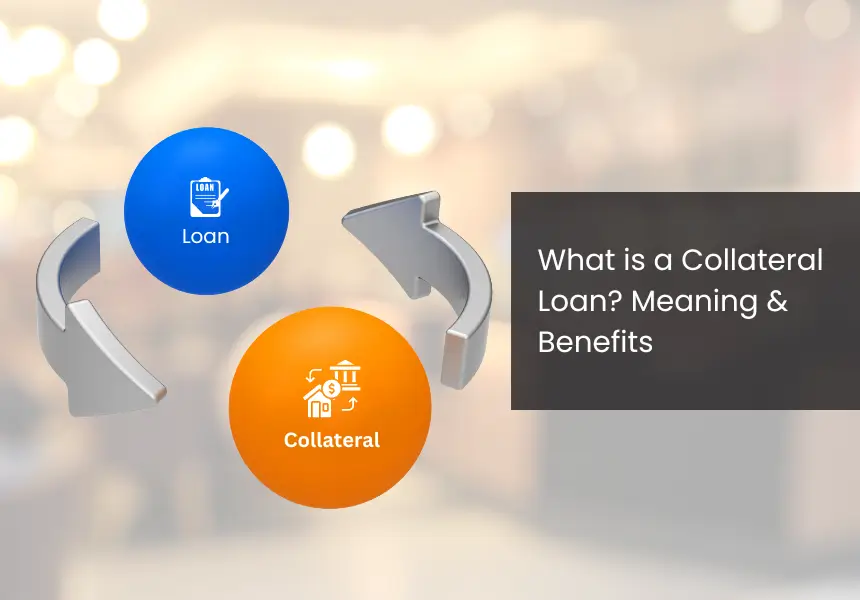
Your CIBIL score is a representation of your credit behavior. Whether you are planning a dream wedding, a vacation, or handling unexpected expenses, your personal loan approval often depends on that 3-digit number. Yet, many overlook this factor and rush into loan applications without knowing where they financially stand.
Now picture this, you’ve planned everything for that much needed loan, only to have your application declined or approved at an unfavorable interest rate because of a low credit score you weren’t aware of. Avoiding such setbacks starts with one simple but important step, checking your CIBIL score.
But why is it so important? How does it impact your loan eligibility? And, more importantly, how to check CIBIL score accurately and without hassle? Here, we will understand how staying informed can save you time and stress. Whether it’s your first loan or your fifth, understanding your creditworthiness is the smartest move you can make toward securing the financial support you need.
Why is it Important to Check Your CIBIL Score?
Your CIBIL score reflects your financial reliability. Regularly checking it helps you stay financially prepared and confident when applying for loans or other forms of credit. Let’s look at a few reasons why it is important to know your CIBIL score.
1. Understand the Factors Impacting Your Score
By checking your CIBIL score regularly, you gain insights into what is influencing it. This could include your payment history, credit utilization or the length of your credit history. This helps in adopting better financial habits and avoiding common mistakes that could harm your score.
2. Avoid Misconceptions About Checking Credit Scores
It is mostly believed that checking your credit score frequently can lower it. However, this is a myth. When you or a potential employer checks your CIBIL score, it is a soft inquiry, it doesn’t affect your score. Staying updated on your credit status allows you to make smarter financial decisions without worry.
3. Identify and Correct Errors
Having any errors in your credit report, such as incorrect personal details or inaccurately reported payments can negatively affect your score. You must review your credit report periodically to ensure you identify any errors and dispute them immediately to prevent unnecessary damage to your financial profile.
4. Prepare for Better Loan Terms
With a high CIBIL score, you may get lower interest rates, higher chances of loan approvals, and access to premium credit cards with attractive benefits. Monitoring your score regularly can help you maintain it in the range preferred by financial institutions.
Factors that Impact Your CIBIL Score
The CIBIL score, a 3-digit number ranging from 300-900, indicates an individual’s creditworthiness and is an important factor that lenders consider while evaluating loan or credit card applications. This score is calculated by analyzing multiple factors, each having a specific weightage. Below are the main factors that influence your CIBIL score.
1. Payment History
Your repayment history is the most significant contributing factor to your CIBIL score. Missing or delaying any payments can have a negative effect. Even a single delay of 30 days can significantly impact your CIBIL score. To build and sustain a high CIBIL score, you must consistently pay your EMIs and credit card bills on time.
2. Credit Utilization Ratio
The credit utilization ratio assesses the amount of credit you utilize compared to your available credit limit. Ideally, you should use no more than 30% of your credit limit to maintain financial discipline. Having excessive usage suggests that you are dependent on credit and can lead to a decline in your score.
3. Credit Mix
Maintaining a balanced mix of secured loans, such as home or auto loans and unsecured loans like credit cards or personal loans can have a positive impact on your CIBIL score. This is because it indicates that you have managed different forms of credit well previously, and are less likely to default in the future.
4. Hard Inquiries and New Credit Applications
Each time you apply for a loan or credit card, lenders perform a hard inquiry to review your credit report. Inquiring more than once within a short time frame can negatively affect your score, as they portray a high demand for credit, making you appear “credit-hungry.” It’s best to avoid applying for multiple loans or credit cards within a short period of time to prevent this issue.
How to Check CIBIL Score Online?
There’s a very simple and quick way to check CIBIL score online. Here’s how you can do it:
- Visit the Official Website: Go to the official CIBIL website at www.cibil.com.
- Choose Free CIBIL Score Option: Look for and select the option labeled ‘Free CIBIL Score & Report.’
- Fill in Your Details: Enter your email address, name, and password to create a new account or log in to your existing account. Provide identification details such as PAN card, Aadhaar, voter ID, or passport number, along with your date of birth, phone number, and PIN code.
- Verify Through OTP: Once you’ve completed the form, click on ‘Accept and Continue.’ An OTP will be sent to your registered mobile number. Enter the OTP and click ‘Continue.’
- Access Your Score: After verification, your CIBIL score will be displayed on the screen, along with the report.
This way you can keep track of your credit health and ensure that you are ready for any loan or credit needs.
How to Check CIBIL Score Offline?
You can check CIBIL score offline by following the steps below:
- Download the Form: Visit the official CIBIL website to download the form required for an offline CIBIL score request.
- Fill in the Details: Complete the form by providing your personal and financial details as requested. Double-check the information to avoid delays.
- Attach a Demand Draft: Prepare a demand draft in favor of TransUnion CIBIL. The fee structure is as follows:
a. ₹550 for the CIBIL Score and CIBIL Report
b. ₹164 for only the CIBIL Report - Send the Documents: Mail the filled form along with the demand draft to the following address:
TransUnion CIBIL Limited
One Indiabulls Centre, Tower 2A, 19th Floor,
Senapati Bapat Marg, Elphinstone Road,
Mumbai- 400013. - Receive Your Report: Once processed, your CIBIL score and report will be sent to the mailing address you have provided in the form.
This method is ideal for those who prefer traditional ways of accessing their credit information without using online portals.
Common Errors to Avoid When Checking Your CIBIL Score
Your CIBIL score is an important aspect of your financial health. It determines your creditworthiness and influences your ability to secure loans and other types of credit. However, certain errors, if left unchecked, can affect your score and present an inaccurate picture of your credit profile. Here are some things you should not ignore while reviewing your CIBIL score:
1. Ignoring Personal Information Accuracy
Ensure your personal details, such as your name, address, date of birth, and identification numbers, are accurate. Even minor discrepancies can affect your credit profile and delay financial processes.
2. Overlooking Credit Account Details
Verify that all your credit accounts, including loans and credit cards, are accurately listed. Missing accounts or incorrect information about existing accounts can create an incorrect CIBIL report.
3. Neglecting Payment History Validation
Your payment history heavily impacts your CIBIL score. Check for inaccuracies in recorded payments, especially any false missed or late payments, as these can unfairly harm your score.
4. Missing Duplicate Entries
Duplicate entries for the same credit account can inflate your credit utilization rate and give an incorrect impression of your financial behavior. Review your report thoroughly to identify and resolve such errors.
5. Not Verifying Credit Inquiries
Review the list of credit inquiries on your CIBIL report. Unauthorized or fraudulent inquiries can indicate identity theft and hurt your score. Ensure all inquiries are legitimate and initiated by you.
6. Not Disputing Errors
If you spot inaccuracies in your report, take immediate action by disputing them with TransUnion CIBIL. Timely corrections can prevent long-term damage to your credit profile.
By avoiding these errors and regularly monitoring your CIBIL report, you can maintain an accurate and healthy CIBIL score. This approach ensures that your financial standing is accurately reflected, helping in easier credit approvals and better financial opportunities.
Summary
Checking your CIBIL score is an important step before applying for a personal loan. It not only gives you insight into your creditworthiness but also allows you to address any discrepancies or improve your score for better loan terms. By regularly monitoring your credit profile and understanding how your financial habits impact your score, you can make informed decisions that enhance your chances of approval.
If you’re looking for a hassle-free personal loan, LoanTap is your ideal solution. LoanTap offers personal loans up to ₹10 lakh with quick processing, minimal documentation requirement, and flexible repayment tenures. . However, to qualify, a minimum CIBIL score of 700 is required, making it important to regularly check and be aware of your CIBIL score.
Frequently Asked Questions
Why is the CIBIL score important for personal loans?
Lenders use your CIBIL score to assess your creditworthiness, and it is one of the factors that determine loan approval and the interest rate and loan terms.
What is the minimum CIBIL score required for a personal loan?
Most lenders require a CIBIL score of 700 or higher for personal loan approvals, but some may also approve loans for lower scores with stricter terms.
What documents are required to check my CIBIL score?
You typically need basic details like your name, date of birth, PAN card (or other identification documents), email address, and mobile number to check your score.
How can I correct errors in my CIBIL report?
You can raise a dispute through the CIBIL website or contact the respective lender to resolve inaccuracies in your credit report.
What other factors do lenders consider apart from CIBIL score?
Lenders also evaluate your income, employment stability and debt-to-income ratio, in addition to your CIBIL score and report, when processing a personal loan application.
How can I check my CIBIL score if I don’t have a loan or credit card?
You can still check your CIBIL score if you’ve never availed of a loan or used a credit card, but it is likely that your score is marked as “NA” (Not Available) because of the lack of credit history.
How to check CIBIL score free?
You can check your CIBIL score for free once a year on the official CIBIL website, by registering or logging in.
How can I check my CIBIL score online without a PAN card?
While PAN is commonly required, some platforms may allow you to check your CIBIL score using alternative ID proofs like Aadhaar card or passport.
How to check my CIBIL score if I suspect errors in my report?
Check your score through the CIBIL website and review the report carefully. If you spot errors, file a dispute directly with CIBIL for correction.








